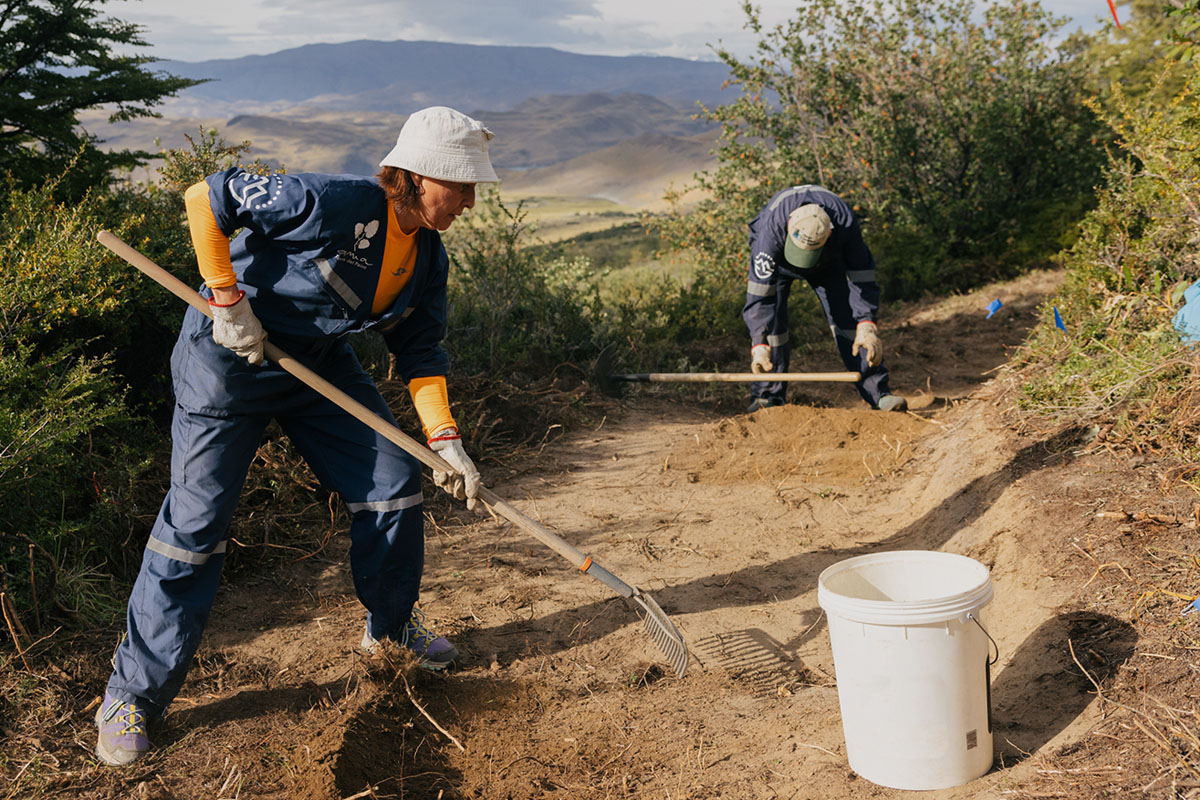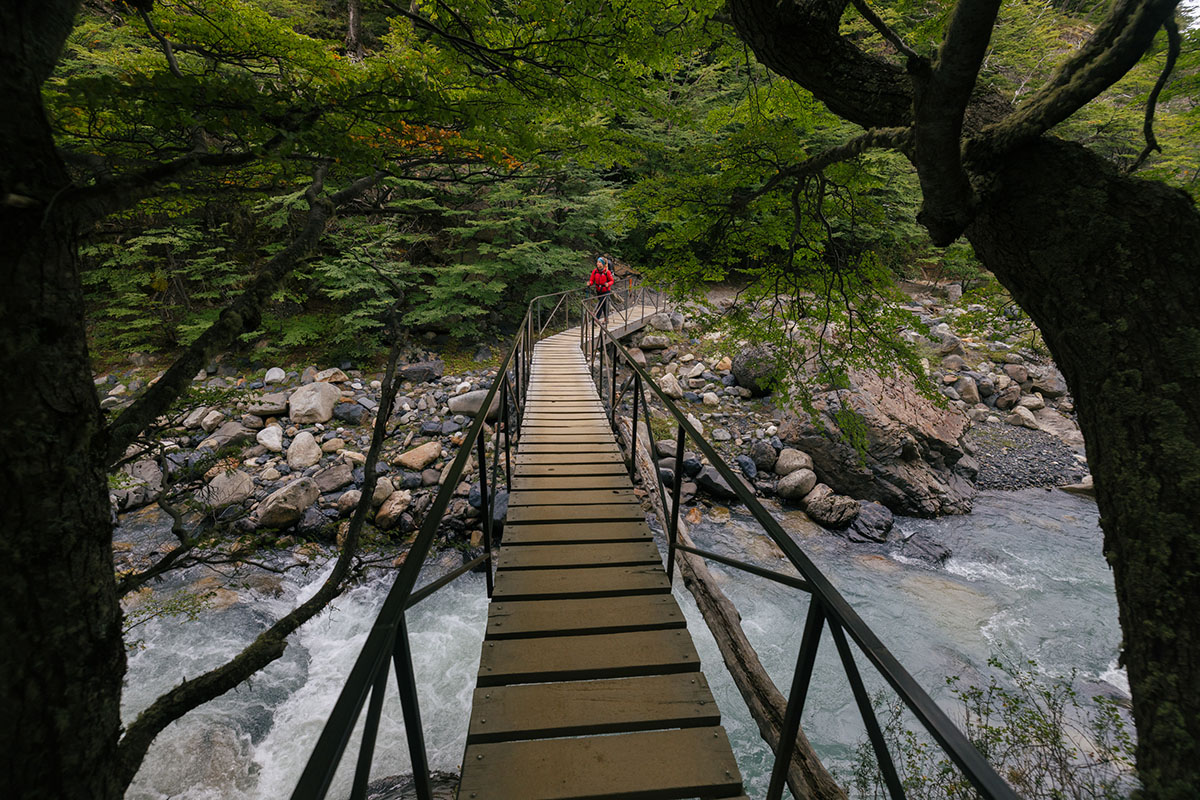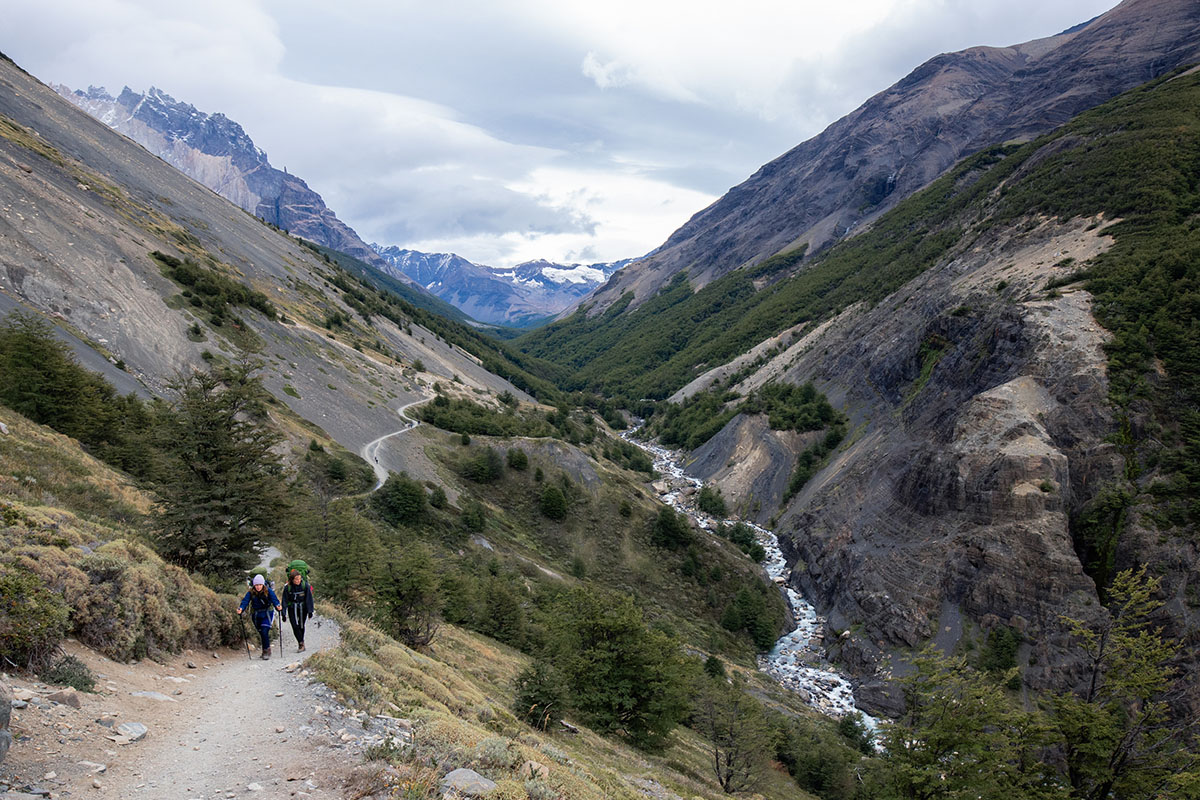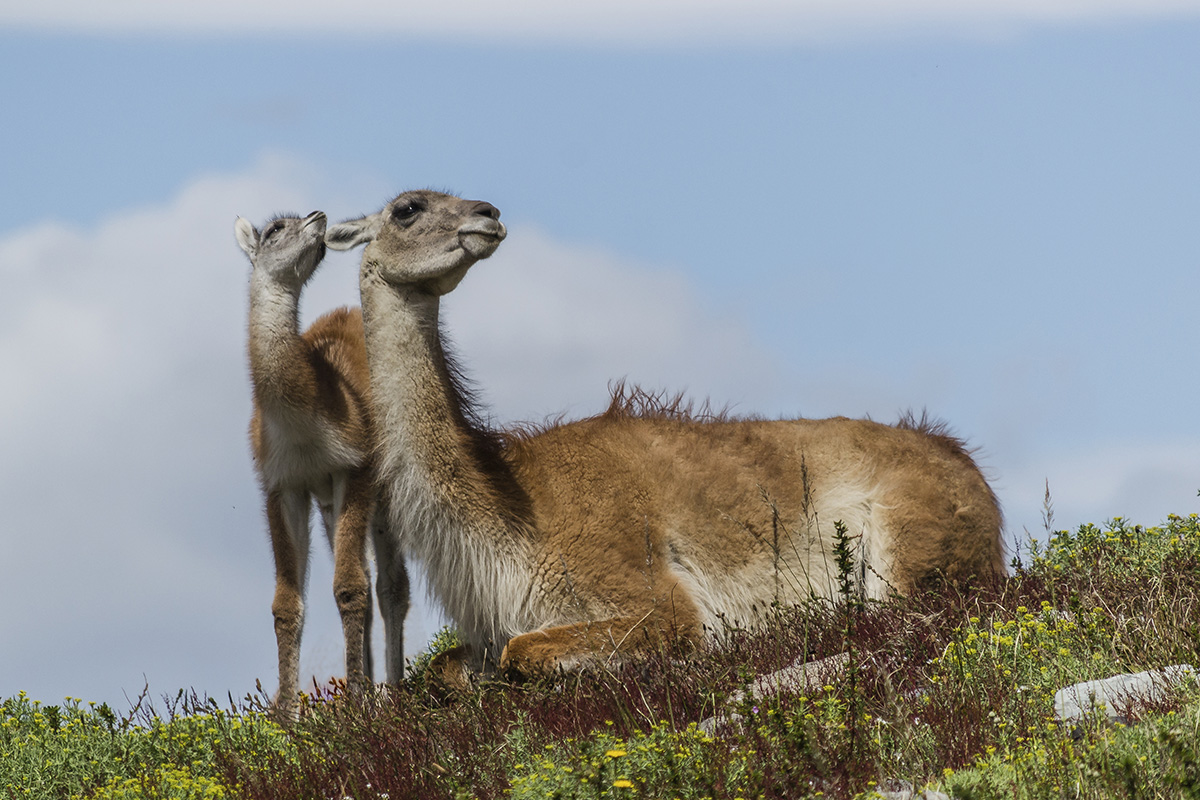When entering the Torres del Paine National Park, one of the keys to having a good time is to respect the designated trails and not venture from their paths. The trails maintain balance in the park’s ecosystem, define our space within nature here, and help ensure our orientation to different points of attraction. For this and other reasons, we can achieve a balance between this biosphere and the people who visit it. Read more to understand how these trails are also a path to sustainability.
Trail maintenance helps us take action against climate change
Natural ecosystems, such as forests and natural protected areas, often traversed by footpaths, act as carbon sinks, capturing and storing carbon dioxide (CO2) from the atmosphere. The maintenance and reconstruction of trails within these areas ensure their protection and contribute to reducing the effects caused by climate change with carbon conservation. In addition, the trails play a role with the existing vegetation, which, located in parallel, helps to continue the process of carbon dioxide absorption through photosynthesis.
Sustainable reconstruction from start to finish
Maintaining the life of the trails is a permanent task since their use exposes them to different external factors: rain, wind, heat, cold, local fauna, and human foot traffic. It is necessary to minimize the intervention used in the maintenance process, as machinery and other motorized devices can affect the ecosystem due to their polluting gases, noise, and activity across the area.
Likewise, we prefer using local and renewable materials in their renovation, which reduces the carbon footprint associated with human activities. This effort implies a lower emission of greenhouse gases during the construction process and a more significant contribution to the fight against climate change.
 Always Working and Growing with the Community
Always Working and Growing with the Community
Reconstruction of our trails supports local communities by fostering cultural exchange and promoting community participation and empowerment. Facilitating the transfer of knowledge and experience from foreign experts to local volunteers ensures we can also build trails with international standards.
We are about to begin our fifth season collaborating with ConservationVIP. This group has undertaken different changes in the conception and execution of trails, calling on international experts with the NGO AMA Torres del Paine and volunteers from all parts of the world to transform roads into sustainable trails.
These improvements, in turn, allow small tour operators and guides to maintain their services, generating income for their businesses and workers. The community depends chiefly on the Torres del Paine National Park’s tourist attractions, which are essential for the Magallanes region and Chile.
 Protecting every kilometer of the ecosystem
Protecting every kilometer of the ecosystem
Of the species identified along the trails here, 75% (46) are native, while 25% (15) are not. 13 species were found within the area, including ten birds and three mammals, belonging to 6 different families. In addition, exotic species such as Equus caballus and Lepus eropaeus were recorded.
Many animals experience significant impacts from intense hiking, manifested through soil compaction, vegetation degradation, and environmental erosion. These effects, in turn, trigger changes in the configuration of the land and its ability to maintain the necessary moisture for plants and their seeds. Likewise, there is the possibility of losing sensitive species or functional groups of plants due to crushing and mechanical damage suffered in plant tissues and roots, leading to decreased nutrients available for plant growth.
These effects are chronic due to the prolonged flow of tourists during each summer season. These issues intensify by the particular characteristics of the substrate, such as the type of soil, the slope, its exposure, and the site’s conditions.
The purpose of designing a new section for the busiest trail in Torres del Paine is to alleviate visitor congestion, establish coherent planning for the area (including biodiversity conservation), mitigate the environmental impact (for example, through gentler slopes), and, consequently, reduce the pressure on a site with vegetation and soils that are particularly sensitive and have a low recovery capacity.
Torres del Paine National Park is Chile’s most popular tourist attraction, bringing together visitors worldwide to do the popular Torres Base Trail trek, part of the famous W Circuit. During the last season, 82,962 visitors ventured into this section.
Preserving these trails as part of the balance of the ecosystem implies a commitment that is constantly renewed each season to preserve this beautiful landscape so that future generations can admire the same wonders that we appreciate today.
If you want to join as a volunteer or learn more about our trail maintenance and reconstruction activities, click this link.
